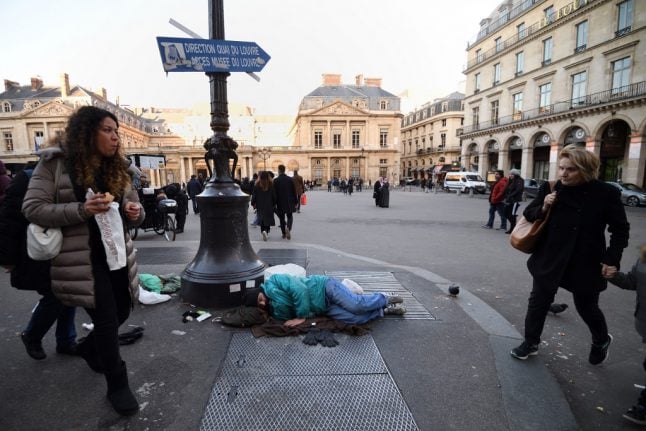The report, from Assistance Publique-Hôpitaux de Paris (AP-HP) and reported in daily newspaper Aujourd’Hui, says that 111 families with children turned up at emergency departments in the six weeks to July 4th looking for somewhere to sleep.
The increase is blamed on government cuts to SAMU Social, an organisation that helps the homeless. SAMU Social receives 92 percent of its funding from the state and has recently had its budget cut by 25 percent. When it is unable to pay for a hostel, the organisation has been sending those in need to seek help in hospitals.
Cuts to the service have led the organisation’s founder and president, Xavier Emmanuelli, to resign. “Things are no longer manageable … nobody cares about this service,” he told the weekly magazine Charlie Hebdo.
Emmanuelli created SAMU Social in 1993, with the help of the then mayor of Paris, Jacques Chirac.
The minister for housing, Benoist Apparu, told the newspaper that the government was trying to move people out of temporary hostel accommodation and into rental accommodation.
“Ultimately, there will be the same number of places as now for homeless families,” he said.
The director of the anti-poverty charity Emmaüs, Christophe Deltombe, said Emmanuelli’s resignation was an “alarm call.” “There are families and children living on the streets today and organizations are unable to put a roof over their heads,” he told radio station Europe 1 on Wednesday.
Emmaüs estimates that there are 100,00 people sleeping rough in France.


 Please whitelist us to continue reading.
Please whitelist us to continue reading.
Member comments